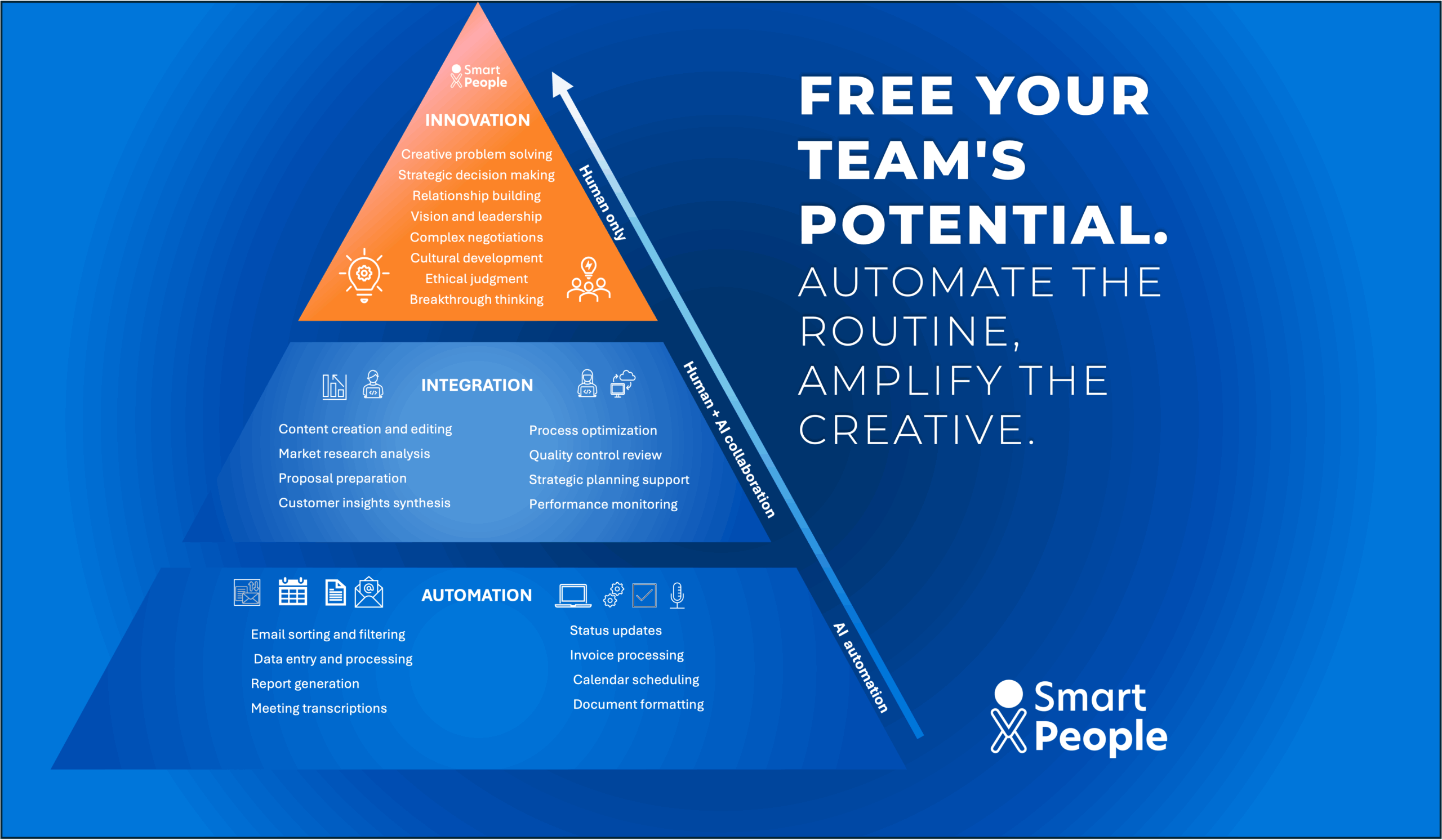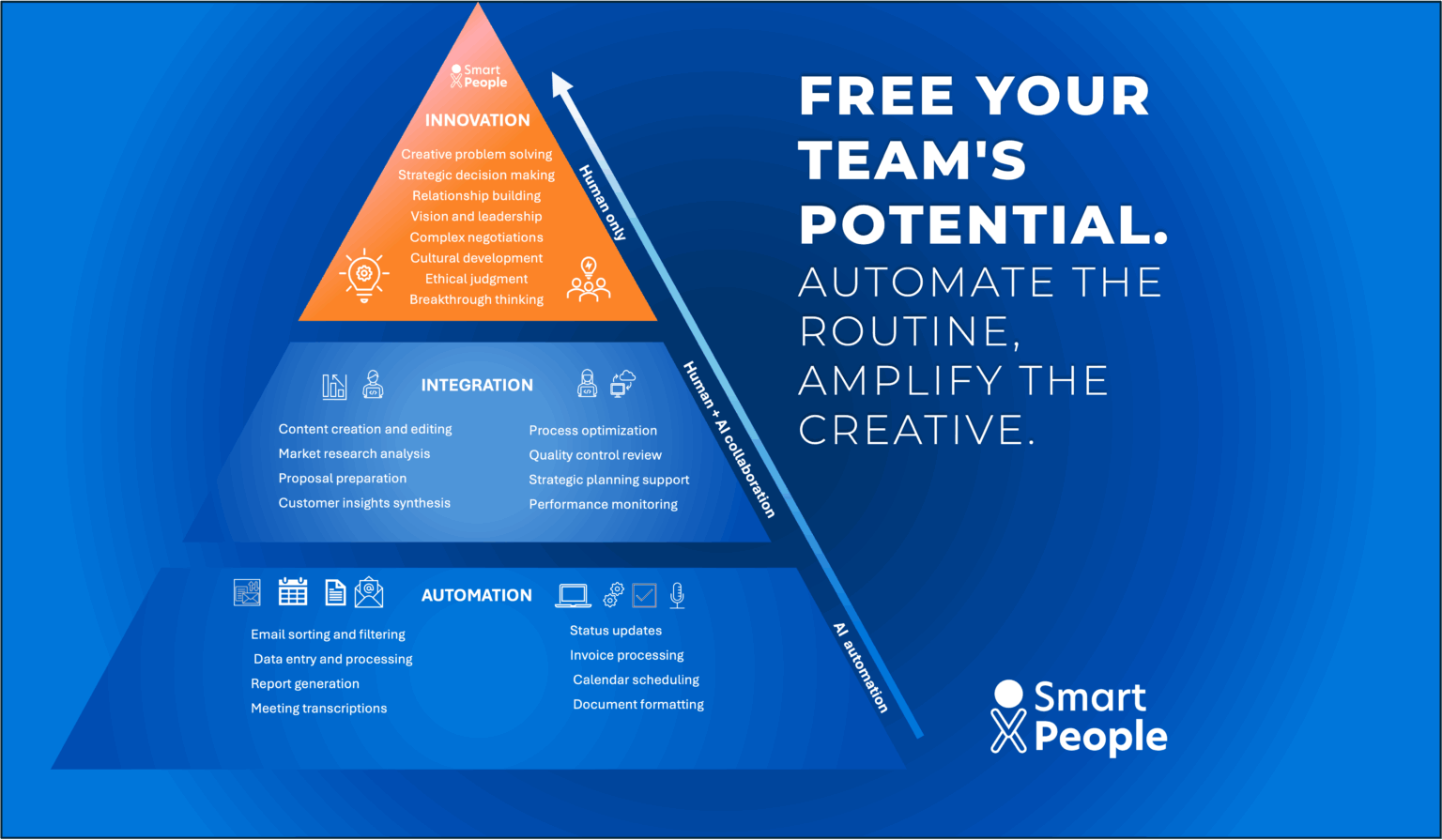
Why I'm Glad We're Not Poland's Largest SAP Training Company
We could be three times bigger. We consciously choose not to be.
This isn't false modesty or an excuse. We have options. We could record courses once and sell them indefinitely. We could pack hundreds of people into webinars. We could sell platform access and wish people luck.
We don't do any of that.
And this decision – this deliberate "no" – is the smartest thing we've ever done.
Not All Growth Is Good Growth
The business world is obsessed with scale. Higher revenue. More clients. Faster expansion. It's the default success metric, the number that impresses on LinkedIn.
But here's what they won't tell you: scale and quality rarely go hand in hand.
When you're teaching SAP SuccessFactors, you're not selling widgets. You're not moving boxes. You're transferring complex knowledge that will determine whether someone can actually do their job when they return to the office on Monday.
That requires something scale can't provide: attention.
What "Boutique" Really Means
When people hear "boutique," they sometimes think "small" or "amateurish." That's not what I mean.
Boutique means control. It means we know every trainer personally. It means I know exactly what's happening in every course because I'm involved. It means when a participant emails with a question three months after certification, they don't hit a ticketing system – they get a real answer from someone who remembers them.
Boutique Means Relationships, Not Transactions
Our clients don't come to us once. They return. They send colleagues. They call when they're stuck on an implementation six months later. That doesn't work when you're optimizing for volume.
Boutique means a reputation you can stake your name on. When someone asks "Where should I do SAP training?" and your graduates say "Smart People – without hesitation," that's worth more than any advertising budget.
You can't buy that. You can only build it. Slowly. Carefully. With every single interaction.
The Pressure to Grow Kills What Makes You Valuable
I've watched it happen to others. A training company starts brilliantly – passionate trainers, engaged participants, real results. Then they get popular. Demand grows. The owners want to capitalize.
So they:
- Hire less experienced trainers (cheaper, more available)
- Increase class sizes (more revenue per session)
- Standardize content (easier to deliver at scale)
- Cut "non-essential" support (like post-course Q&A)
And suddenly, what made them great disappears. Participants notice. Reviews drop. Word of mouth shifts from "you have to go there" to "it's okay, I guess."
The business is bigger. But it's worse.
Growth Ate the Value Proposition
I've seen this movie. I'm not interested in the sequel.
"No" as Strategy
Here's what we say no to:
No to the "Buy Access and Good Luck" Model
There's a popular alternative: SAP Learning Hub. Self-study platform. You buy access, get e-books, PDFs, general simulations. And... the rest is up to you.
The Result?
40% of candidates fail the exam on their first attempt. They lose €500, time, and career momentum.
Why? Because reading an 800-page PDF about MDF (Metadata Framework) is like describing color to someone who's never seen it. Without practice, without the ability to ask questions, without someone showing you "aha, so THAT'S where you clicked and why the field isn't visible."
We run 25 live sessions with a 9x certified expert (Flávio Tavares). Monday, Wednesday, Friday, 7:00-9:00 PM CET. Participants can ask questions when stuck. They can watch the trainer configure the system live. They can make mistakes with us, not with a client who'll send a corrective invoice.
No to Lack of Practice
Theory without practice is like describing color to someone who's never seen it. Our participants practice on real SAP instances – the same ones our consultants use on actual client projects. You click, you break, you fix – until you understand. Not screenshots. A live system.
No to Leaving People Alone After the Course
Completing the course isn't the end – it's the beginning. That's why we offer:
- Bonus webinar with career expert (Sławomir Janczewski, 28 years B2B experience): "How to build your market value and negotiate rates as an SF consultant"
- Preparation for the official SAP certification exam – practice simulations and test-taking strategy
- Consultant community support – networking, job search assistance
- Lifetime access to recordings of all 25 sessions
Our Philosophy
We don't want you to be "just another graduate with a certificate." We want you to be a specialist who knows how to sell your skills and pass the SAP exam on the first try.
It's a choice: easy revenue or real results. We choose results. Every time.
Why This Matters to You
You might think: "Okay, Kasia, but I don't run a training company."
Fair enough. But ask yourself: Where in your business are you being pressured to scale at the expense of quality?
Maybe it's:
- Taking on more clients than you can properly serve
- Hiring faster than you can effectively onboard people
- Expanding into new markets before mastering your core
- Automating processes that actually need human touch
- Saying yes to projects that don't fit your strengths
The "growth at all costs" narrative is everywhere. It's tempting. It looks like success.
But sometimes the most strategic move is staying focused. Protecting what makes you excellent. Building deep instead of wide.
Our Version of Success
We're not Poland's largest SAP training company. And we're okay with that.
We're the one people come back to. The one they recommend to colleagues. Where trainers actually want to teach because they have the conditions to do it well.
And that's enough for us.
So I'm Asking You
Where in your business have you chosen focus over scale?
I'd genuinely love to hear your story. Reply or leave a comment – let's talk about what happens when you choose quality over quantity.
Because I think more businesses need the courage to stay boutique.
Ready to Transform Your SAP SuccessFactors Career?
Join our next Employee Central course – 25 live sessions with 9x certified expert Flávio Tavares.
Practice on real SAP instances. Get career coaching. Pass your certification on the first try.
Learn More About Our CoursesQuestions? Let's Talk
Kasia Kwiatkowska
CEO & Founder, Smart People Global Academy
Email: katarzyna.kwiatkowska@smartpeople.com.pl
LinkedIn: Connect on LinkedIn
















